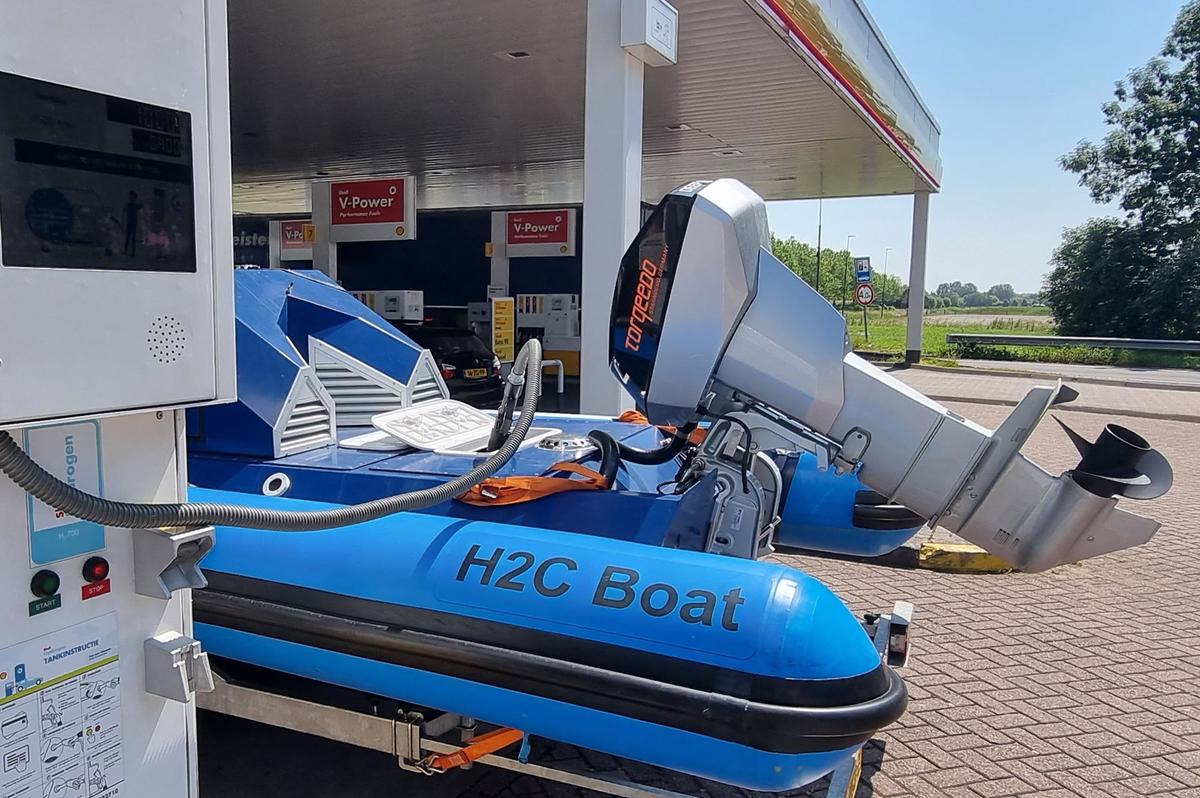Hydrogen enters World Sailing Championships
Dutch sailing organisation Watersportverbond will introduce a hydrogen fuel-cell powered coach boat at the 2023 World Sailing Championships in The Netherlands.
 PHOTO: Hydrogen-electric hybrid sailing coach boat called H2C. Torqueedo
PHOTO: Hydrogen-electric hybrid sailing coach boat called H2C. Torqueedo
Coach boats are boats that accompany athletes to provide any physical or advisory support, including safety rescue and data gathering, according to the International Sailing Federation.
Watersportverbond’s coach boat, called H2C, will be powered by engine manufacturer Torqueedo’s hydrogen-electric hybrid power system.
The main propulsion of the vessel is electric, while hydrogen provides additional range support of over five hours. The hybrid system can enable the vessel to reach a top speed of 45 km/hour, Torqueedo said.
H2C was developed by a global marine consortium that comprised of Sailing Innovation Centre, Watersportverbond, Delft University of Technology, boat distributor De Stille Boot, fuel cell maker Intelligent Energy, hydrogen tech firm Hyfly, marine engine supplier Koedood Marine Group and Habbeké Shipyard has resulted in a groundbreaking success story.
“The presence of hundreds of coach boats at the World Championships showcases the potential of this project in reducing the carbon footprint of sailing events,” Marcel Schaap, founder and managing director of De Stille Boot said.
Hydrogen’s potential beyond short-sea shipping
While hydrogen is an attractive option for decarbonizing smaller vessels, it still falls short of powering large ocean-going vessels.
This is because, currently, hydrogen vessels are powered by proton exchange membrane (PEM) fuel cells. The fuel cells need a constant hydrogen supply to generate power, and long distances and larger vessels would require significantly more hydrogen. The high cost and challenges of storing large-quantity of hydrogen on board make PEM fuel cells expensive and impractical for long-distance voyages.
To power vessels beyond short-sea shipping, today’s PEM fuel cells will have to make way for the next generation of solid oxide fuel cells (SOFCs), Tore Enger, chief executive of TECO 2030 told ENGINE last year. SOFCs have a much higher energy efficiency than other power sources, including PEM fuel cells.
By Konica Bhatt
Please get in touch with comments or additional info to news@engine.online






